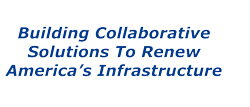
Conflict Resolution
Abraham Lincoln, 1850
Collaborative Dispute Resolution Process
Mediation, as with other collaborative processes, is a private, confidential, and non-binding method of dispute resolution, involving a neutral third party who is trained to assist the parties in finding a mutually acceptable settlement to their dispute.
By using mediation, the parties remain in complete control of the resolution of their dispute, and can fashion a settlement that satisfies their individual interests and provides for potential “win-win” outcomes. In contrast, in litigation or arbitration the parties surrender total control to a judge or arbitrator and must accept a “win-lose” or even a “lose-lose” result from a third party’s decision.
The Neutral’s main role is to actively assist the parties in moving toward their achieving their interests and settlements that work. The mediator serves to schedule and secure negotiations, acts as a catalyst, helps develop proposals between the parties, and serves as an assessor -– not a judge – of the positions taken by the parties during the course of the negotiations.
In summary, here are a few of the major benefits resulting from the use of mediation and other collaborative processes:
- The Parties’ control the outcome. One benefit of mediation is that the parties remain in control of the resolution. Unlike litigation or arbitration, in mediation parties don’t relinquish control of the decision to a third party, who must be extensively educated. Rather, they seek assistance from a skilled neutral.
- Pressure relief. A good mediator can help in dispelling negative emotions which are often the propellant for litigation. This is often done by allowing “venting” by the parties in a controlled environment at the outset of the mediation process thus releasing some steam and giving the parties the opportunity to be heard.
- No expensive learning curve. A mediator experienced in construction and the law can provide assistance, without all the anguish involved in completing the discovery process. A knowledgeable mediator can facilitate a settlement without the need of an extensive education. He can also provide confidential insights, as to the nature of each party’s individual case strengths and weaknesses.
- Savings in time and money. Instead of taking years to complete a law suit, the entire mediation process can be over in weeks. The mediation itself is often no more than a day or two. The cost of the mediation process is also a fraction of the cost of litigation. This is true even taking into account that most litigation ultimately settles before trial.
- Preserving relationships. The mediation process also allows for creativity in coming up with differing solutions to effectuate a settlement. Interest based principles of negotiation can help expand the pie for all the participants. In this way, mediation allows the parties an opportunity to preserve their relationships, as opposed to the damage caused from litigation.
- Confidentiality. The mediation process can remain completely confidential as any settlement agreement might be and is also subject to certain additional protections by laws that govern the mediation process.
REPRESENTATIVE COLLABORATIVE DISPUTE RESOLUTION – Chris Kane
- Mediator in successful settlement of dispute between State of New Jersey and general contractor involving changes, delays and cost overruns on construction contract for a State water treatment facility.
- Structured multi-step dispute resolution process on a $300 million coal gasification, clean coal power project between utility, construction manager and designer. $40 million in disputes successfully resolved, without litigation.
- Mediator in successful settlement of a $300,000 construction contract dispute for a new school construction between general contractor and school authority.
- Third party neutral fact-finder for schedule, design and cost issues for construction of a $250 million “state of the art” power project.
- Represented remediation contractors in mediation of contract disputes for cleaning up a plastics manufacturing plant following contamination with asbestos, PCB’s, and dioxins, caused by a fire.
- Arbitrator on a multimillion contract dispute involving a private operator’s performance on a municipal wastewater treatment plant.
- Evaluated multi-million dollar claims on complex construction contracts including issues of design defects, scheduling, equipment problems and labor productivity.
- Single Arbitrator on multimillion construction disputes involving subsurface and differing site conditions large coal fired power plant.
DISPUTE RESOLUTION TRAINING
CONSENSUS BUILDING INSTITUTE, Use of Consensus Building for Land Use Dispute, Cambridge Mass. (11/09)
HARVARD PROGRAM ON NEGOTIATION, Boston, Ma., Program on Negotiation for Senior Executives, and How to Deal with Difficult People and Situations (4/08)
CENTER FOR DISPUTE SETTLEMENT, Washington D.C., Mediation Training, Spring 1994
AMERICAN ARBITRATION ASSOCIATION, AAA Pro Se: Managing Cases Involving Self-Represented Parties (ACE002), 2008; AAA Construction Arbitrator II Training: Advanced Case Management Issues, 2006; Construction Lien Law Orientation, 2006; Attended AAA Neutrals Conference, 2005; New Jersey Continuing Education, Mediator/ADR Training, 2004, 2003, 2002; AAA Construction Industry Arbitrator Training, 1997; AAA Advanced Mediator Training, 1996; Center for Dispute Settlement, Mediation Training, 1995; AAA Basic Mediation Training; AAA Basic Arbitrator Training.

